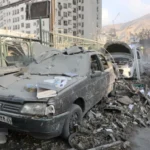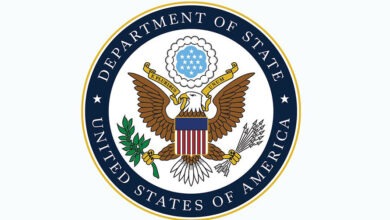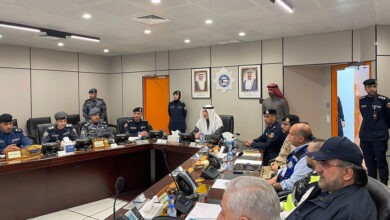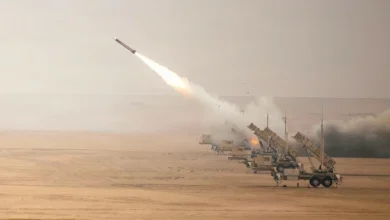Ceasefire halts 12-day Iran-Israel war after deadly escalation and U.S. mediation
As the guns fall silent, the region holds its breath. The “Twelve Day War,” as Trump dubbed it, may be over, but the underlying tensions remain. The U.S. has urged both sides to honor the ceasefire, with Trump writing: “They have so much to gain, and yet, so much to lose if they stray from the road of RIGHTEOUSNESS & TRUTH.”
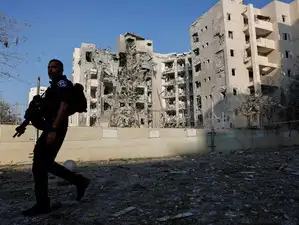
A ceasefire between Iran and Israel is now officially in effect, bringing an end to a tense and destructive 12-day war that saw waves of missile exchanges, a retaliatory Iranian strike on a major U.S. military base in Qatar (largely seen as a face-saving scenario), and high-level diplomatic intervention led by U.S. President Donald Trump.
President Trump confirmed the ceasefire in a post on Truth Social early Tuesday morning, writing: “THE CEASEFIRE IS NOW IN EFFECT. PLEASE DO NOT VIOLATE IT!” His announcement followed hours of intense back-channel negotiations involving American and Qatari diplomats and came just after Iran launched several waves of missiles at Israeli territory—one of which killed at least four people, according to Israeli emergency services, according to international news agencies.
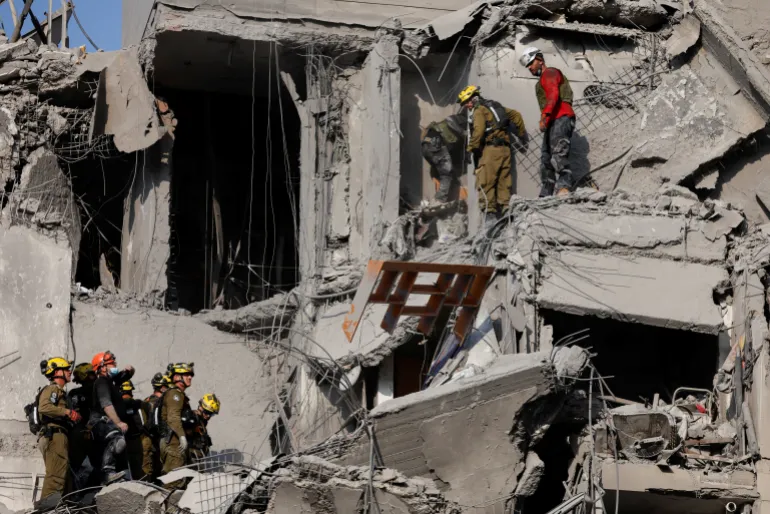
The ceasefire, brokered behind the scenes by the Trump administration with support from Qatari officials, was confirmed incrementally. Iranian Foreign Minister Abbas Araghchi posted that the Iranian military fought until the “very last minute,” while Iranian state television declared the ceasefire had been “imposed on the enemy” following the country’s military response to “U.S. aggression.”
The phased ceasefire was structured to give both parties time to wind down operations. According to Trump: Iran would begin the ceasefire at 04:00 GMT Tuesday. Israel would follow by 16:00 GMT, marking the start of a full bilateral halt to hostilities.
Final Salvos Before Ceasefire
Shortly before the truce came into effect, Iran launched at least six ballistic missiles toward Israel, with one missile hitting a residential building in Beersheba, killing four people. Israeli air defense systems were activated across several regions. It’s common for military operations to continue into the early moments of a ceasefire, but the scale of this final round underscored the fragility of the truce.
Just hours earlier, Iran had also fired roughly a dozen missiles at Al Udeid Air Base in Qatar, the largest U.S. military installation in the Middle East. U.S. and Iraqi officials said Iran gave notice before the strike, and Patriot PAC-3 missile defenses successfully intercepted all but one projectile. No casualties or major damage were reported. Satellite imagery showed the base was largely emptied of aircraft in anticipation of the attack.
Trump later stated that Iran and Israel had reached out to him “almost simultaneously,” asking for peace. He described the outcome as a victory for diplomacy: “The World, and the Middle East, are the real WINNERS!” he wrote.
CNN reported that U.S. officials had worked urgently behind the scenes following Iran’s strike on Al Udeid, while three diplomats confirmed that Qatari mediation was crucial in persuading Iran to accept the American proposal for ceasefire, contingent on Israel’s parallel agreement.
Vice President JD Vance echoed Trump’s sentiments, saying the war appeared “effectively over,” and called for efforts to restart a “real peace process.”
While Iranian state TV confirmed the ceasefire, and President Trump declared it “complete and total,” Iran’s foreign ministry issued more cautious messaging, warning it would retaliate if attacked again. Meanwhile, Israel has yet to formally comment on the truce since its announcement.
Still, no new Israeli strikes on Tehran have been reported since early Tuesday, signaling a tentative pause.
The ceasefire has already had ripple effects beyond the battlefield. Oil prices, which surged during the conflict due to fears of supply disruptions, plummeted on Tuesday following the ceasefire. U.S. West Texas Intermediate crude dropped 2% to $67.13 per barrel, with Brent falling 1.8% to $67.17. This followed a 7% crash the previous day after Iran’s retaliatory strikes, marking one of the steepest drops in years.
The end of the conflict also raises questions about future deterrence, the role of U.S. military bases like Al Udeid, and the effectiveness of missile defense systems in modern regional warfare.
Despite the looming ceasefire, Iranian state television reported the assassination of nuclear scientist Mohammad Reza Sedighi in an Israeli strike that occurred just before the truce was set to take effect. Tehran vowed retaliation if such operations continued.
CNN and Axios quoted U.S. officials as saying that Trump plans to personally tell Israeli Prime Minister Benjamin Netanyahu that he does not want more wars. “We want an agreement, and we do not want more war.”
Trump also confirmed the destruction of Iranian targets in recent U.S. strikes and reiterated that Washington does not seek further intervention. Still, Iran issued a stern warning through Araqchi, stating that the country remains ready to respond again in the event of any new U.S. aggression.
Qatar’s General Civil Aviation Authority announced the reopening of the country’s airspace and the resumption of normal air traffic operations after intercepting Iranian missiles aimed at the Al Udeid base. Qatar’s Ministry of Defense confirmed that no casualties or infrastructure damage occurred due to the attack, thanks to advanced air defenses.
The UAE strongly condemned the Iranian missile strike, calling it a violation of Qatar’s sovereignty and a breach of international law. The UAE reiterated its full solidarity with Qatar and its commitment to regional stability.
U.S. sources told Fox News that the military had anticipated the Iranian attacks and was fully prepared. Air raid sirens sounded in Bahrain during the Iranian missile strike, and U.S. forces at Ain al-Asad base in Iraq activated air defense systems in anticipation of further attacks.
An Iranian official told CNN that calls for a ceasefire were perceived as a ruse to test Tehran’s resolve. “The war could last two years, and we are prepared for that,” he said. “We want Washington to pay the price of the war directly, rather than standing behind Tel Aviv at no cost.”
The Khatam al-Anbia Central Headquarters issued a stark warning to the United States, vowing “powerful operations and dire consequences” in response to its actions. A spokesman declared, “You may have started the war, but we are the ones who will end it.”
The conflict began after Israel launched strikes on Iranian nuclear facilities, prompting missile and drone retaliation from Tehran. Escalations intensified with each day, culminating in U.S. B-2 bomber attacks on Iran and Tehran’s retaliatory strikes on American and Israeli targets.
Despite the hostilities, both nations seemed eager for a way out. Israeli Prime Minister Benjamin Netanyahu had said on Sunday that Israel was “very, very close” to achieving its objectives. Iranian media framed the ceasefire as a victory, emphasizing that it had been “imposed on the enemy.”
As the guns fall silent, the region holds its breath. The “Twelve Day War,” as Trump dubbed it, may be over, but the underlying tensions remain. The U.S. has urged both sides to honor the ceasefire, with Trump writing: “They have so much to gain, and yet, so much to lose if they stray from the road of RIGHTEOUSNESS & TRUTH.”
The world now watches to see whether this ceasefire marks a lasting shift—or just a pause before another round.






